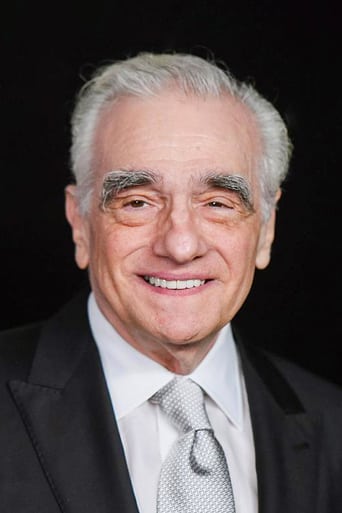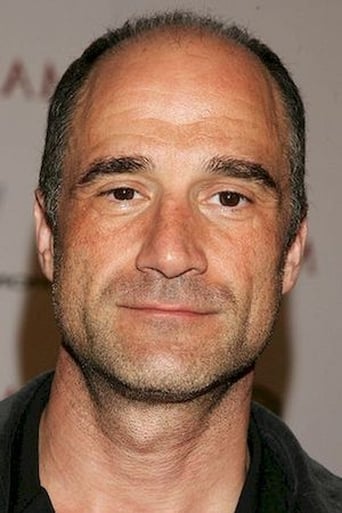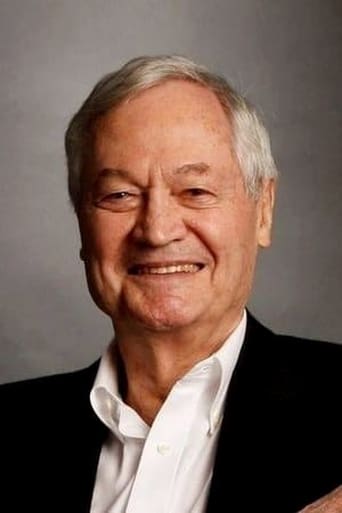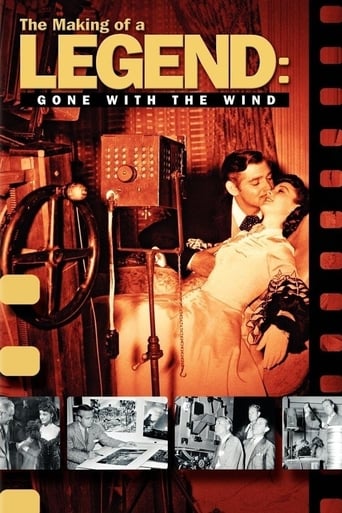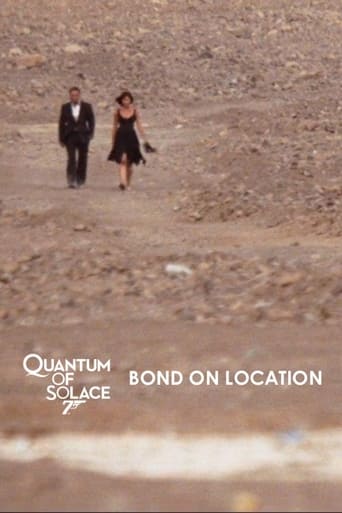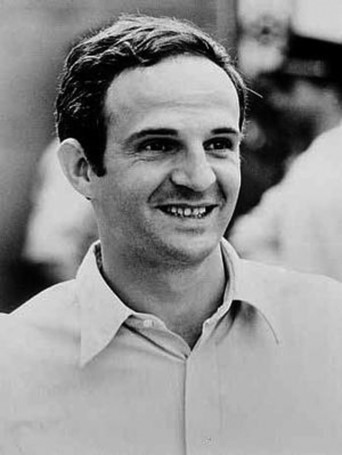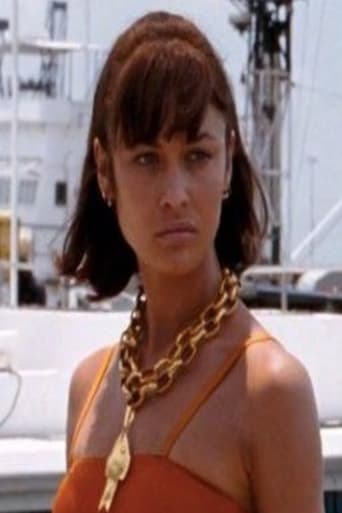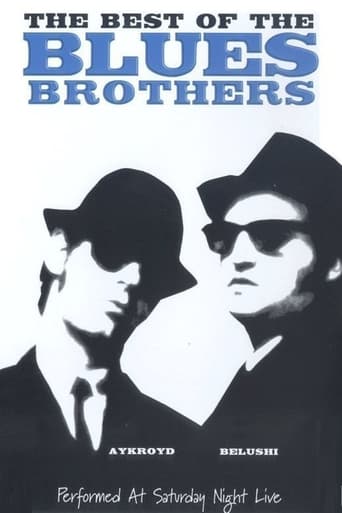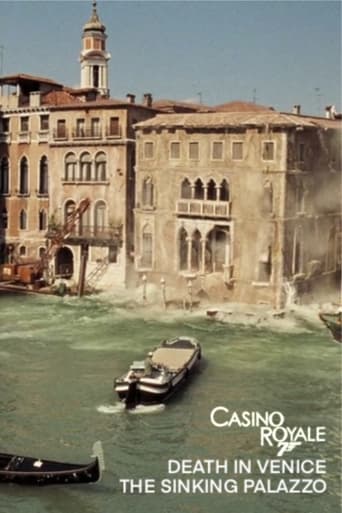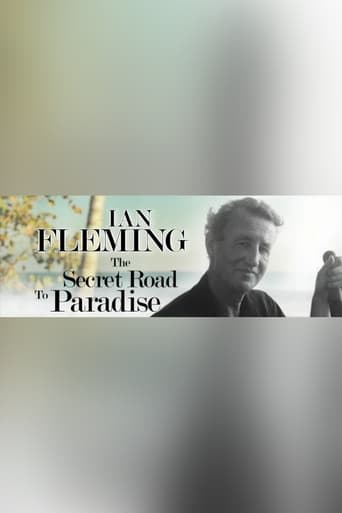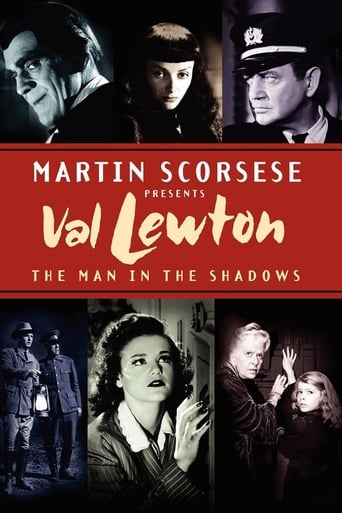
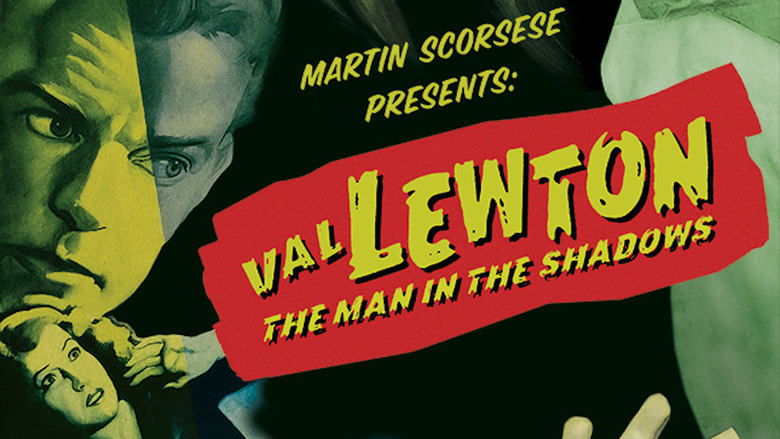
Val Lewton: The Man in the Shadows (2007)
Martin Scorsese narrates this tribute to Val Lewton, the producer of a series of memorable low-budget horror films for RKO Studios. Raised by his mother and his aunt, his films often included strong female characters who find themselves in difficult situations and who have to grow up quickly. He is best remembered for the horror films he made at RKO starting in 1940. Starting with only a title - his first was The Cat People - he would meticulously oversee every aspect of the film's completion. Although categorized as horror films, his films never showed a monster, leaving it all to the viewers imagination, assisted by music, mood and lighting.
Watch Trailer
Cast
Similar titles
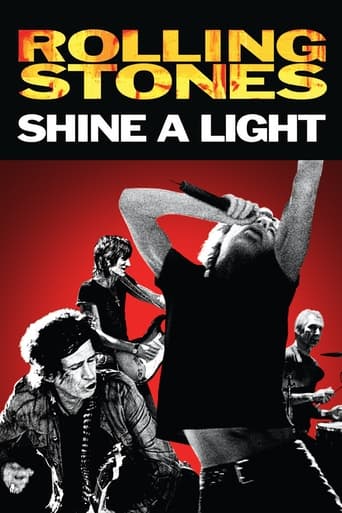
Reviews
Very disappointing...
Sick Product of a Sick System
Just what I expected
The movie's not perfect, but it sticks the landing of its message. It was engaging - thrilling at times - and I personally thought it was a great time.
Satanists.....split personalities obsessed with felines.....mental institutions abusing their patients....corpse thefts for medical research....obsessions with the undead. Just some of the subjects of the Val Lewton unit at RKO that lasted only four years. The dream-like photography of these cult thrillers fascinate film students to this day, and are studied by horror filmmakers who have utilized many of the aspects that these films have made legendary. If there is a genre called horror noir, then Val Lewton created it.A great look at the life and career of this cult film figure, exploring the concepts of the technology that to some aspect is really the star. Big names like Karloff, Lugosi, Simone Simon, Tom Conway and Henry Danielle added box office interest, but ultimately it is the look of the film that remains the focus of conversation with aficionados of his work. Photography, lighting, editing, shadowing and music are important aspects of his work, revealing more than the words of the characters even do. If you ever have the chance to see his films on a big screen, I highly recommend it. The echoes of silence become so much more frightening in what he has his technical crew doing. What makes these films more fascinating is that there is a sensuality in the themes, and much is left to the imagination. More ironic is the fact that Lewton only produced these films, directing only the director, and many of those men went onto impressive careers of their own. You can tell by the narration of legendary modern director Martin Scorsese is that he was greatly influenced into going into filmmaking by seeing these films as a kid. Certainly, the earlier horror films of James Whale and Tod Browning had some influence on the technology that Lewton took a step further. I can get watch his films over and over and pick up something new every time. Make that his movies and this documentary.
Val Lewton was born in Russia and emigrated as a child with his family to America. He worked around the outskirts of Hollywood for a while before becoming a producer of what were called horror films at RKO Studios. This was in the early 1940s. He died shortly after the end of the war, of a heart condition.During his active period, this melancholy and retiring man -- who rewrote all his scripts without taking any screen credit -- led a unit of friends and compatible colleagues that produced some of the most haunting, small-budget, eerie movies to come out of Hollywood, about nine all together.This documentary by Martin Scorsese is an appreciation of Lewton's work, and nicely done it is. Lewton deserves all the attention and thought that went into the documentary. There are abundant excerpts from his films and interesting commentaries from a handful of talking heads, including that of the little girl from "The Curse of the Cat People", now fully grown."The Curse of the Cat People" is emblematic of the titles and material being thrown at Lewton while he was at RKO. The studio had just produced "Citizen Kane," a ruinously expensive flop at the time, and its new motto was "Showmanship, Not Genius." An additional impetus to the formation of Lewton's unit came from the success of Universal Studios' monster movies: "Frankenstein," "Dracula," "The Wolfman," "The Curse of Frankenstein," "The Briss of Dracula," and what not. The intention was for Lewton to make competitive monster movies at less cost. He did considerably more than that. He was stuck with the lurid titles and the sometimes irrational plots but he managed to polish the stories and see that they were filmed with impeccable taste.The narration is well written and insightful. Here's an instance of what I mean. I'd never realized it before but the most hair-raising moments in Lewton's movies are handled very briefly. They last only an instant or two -- a bus hissing to a halt, a trickle of blood under a door, the hoof beats of a horse turning into a flapping old automobile tire -- whereas today one would find these effects not only made more explicit but lingered over until the audience was on the edge of exhaustion or maybe beyond that.For those who are interested, there is a boxed set of nine of Lewton's best films now available on DVD, and each film is accompanied by a knowledgeable commentary.
Born in Yalta in the early 1900s to Russian parents, film producer Val Lewton was raised in America by his mother and sister, honing a colorful imagination even through his years at military school; he wrote articles and published a few pulpy stories before landing in Hollywood as protégé to David O. Selznick. Selznick turned out to be a helpful boss but was no father-figure, rarely if ever giving Lewton credit for the work he did on pictures such as "Anna Karenina" and "Gone With the Wind". A movie-producing offer eventually came from financially-strapped RKO, who hoped a series of low-budget thrillers would get them back in the black, and Val Lewton was on his way. This documentary on Lewton's career (produced in conjunction with Turner Classic Movies by Martin Scorsese, who also narrates) is nearly bereft of details on Lewton's personal life, mostly due to the fact no documents exist of his recorded voice. Photos and letters written by Lewton help to fill in the gaps, but we never get much sense of the reported turmoils and trouble Lewton went through while working in Hollywood. We also are not privy to much information that went on in the RKO offices with each new Lewton release, only that his films were "successful" up to and including 1946's "Bedlam". If all or most of his films were so popular, what accounted for Lewton's anxieties? He and his wife raised two children--a girl who is unaccounted for here, and a son who has grown up seemingly in the dark regarding his father's business affairs--but what happened to his supporters? Editor Mark Robson and director Robert Wise, themselves protégés of Val Lewton, later found success on their own but failed to extend an olive branch to Lewton once tastes in Hollywood changed. Yet, instead of acknowledging the fact that Lewton was out of step with the times, Robson and Wise are left looking like false friends. The special is clip-heavy, with a finely-tuned parallel atmosphere to compliment the array of sequences, yet it doesn't cut very deep. Still, if the central desire here was to create an interest in Val Lewton's productions for audiences unaware of his languid, elegiac and stylized mood pieces, then "The Man in the Shadows" certainly succeeds. It thoughtfully whets the appetite for an evening's worth of Lewton product, and the artful way in which he was able to combine good and evil with the most subtle of touches.
VAL LEWTON gave us many wonderful horror films throughout the '40s, but at one time he worked as a reader for David O. Selznick and told the producer his feelings about GONE WITH THE WIND: "This is the biggest piece of rubbish I've ever read. You'll be making the biggest mistake of your career if you decide to make this." (paraphrasing, of course). Well, he may never qualify as an accurate prophet, but he did know how to use subtle horror to make films like THE CAT PEOPLE and I WALKED WITH A ZOMBIE.MARTIN SCORSESE narrates this thoughtful documentary on the producer with many interesting film clips from the low-budget horror films that are now considered film classics of their kind by a man who was "drawn to the darkness of the shadow world." He trusted many of his associates when he began filming the features at RKO with men like Jacques Tourneur, Nicholas Musuraca, DeWitt Bodeen, Roy Webb, and later Mark Robson. His films had an hypnotic effect on audiences, providing subtle horror through the power of suggestion.In private, he was a sensitive man, never fully satisfied with his work or his assignments, but happily married to a woman who understood him and his needs. He was really not tough enough to be a Hollywood survivor and had a few heart attacks before the major one that killed him at the age of 46.The documentary tells how he ignited the career of BORIS KARLOFF when Karloff was assigned to films like ISLE OF THE DEAD, THE BODY SNATCHERS and BEDLAM. As the war drew to a close, people began to turn away from horror films and Lewton's career began to decline when the defining films of his earlier career were no longer being made.His low-budget films really were low-budget: for CAT PEOPLE he was given a budget of $150,000, but the film was a huge hit, made a million at the box-office when only A-budget features made as much and stayed in big city theaters longer than CITIZEN KANE that year!
